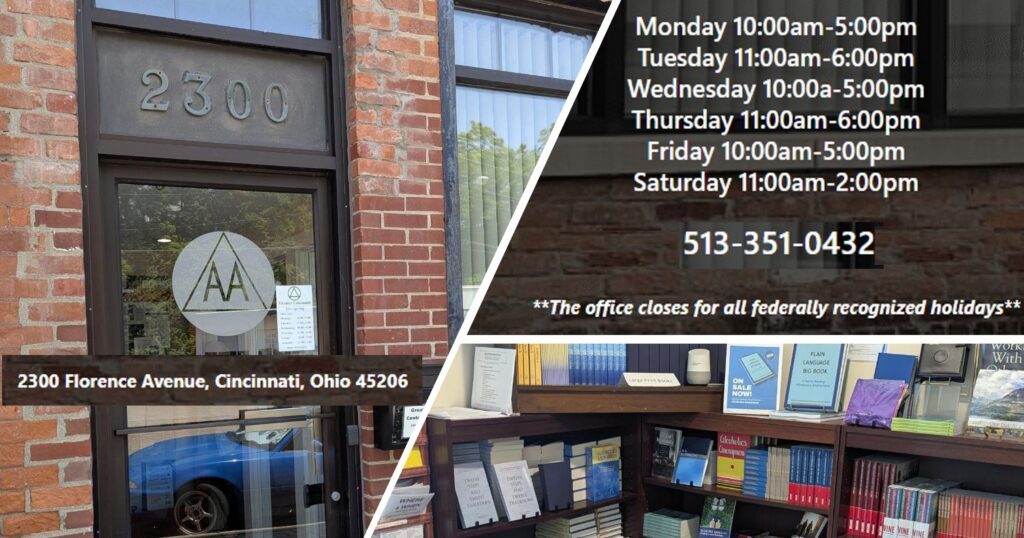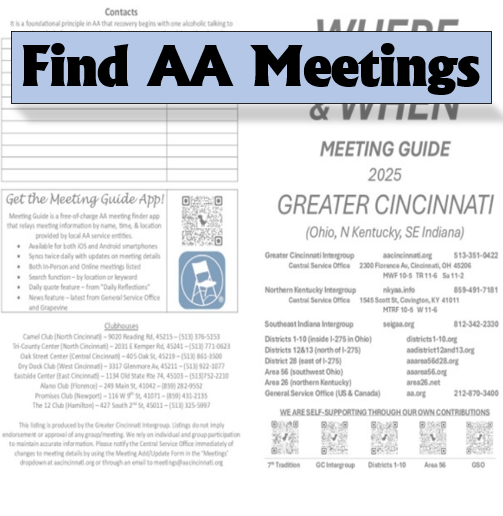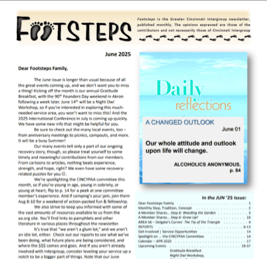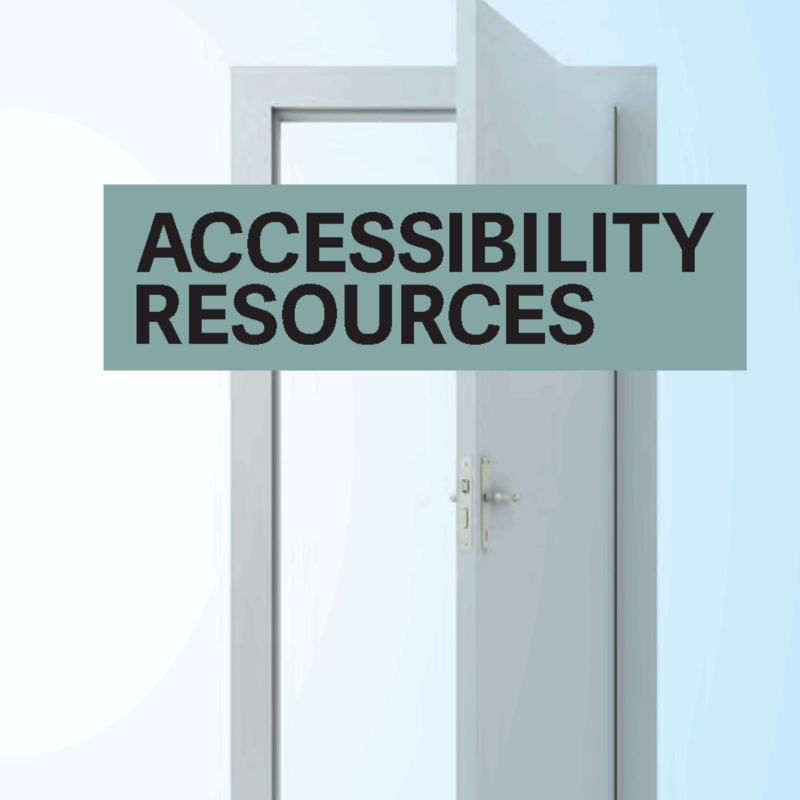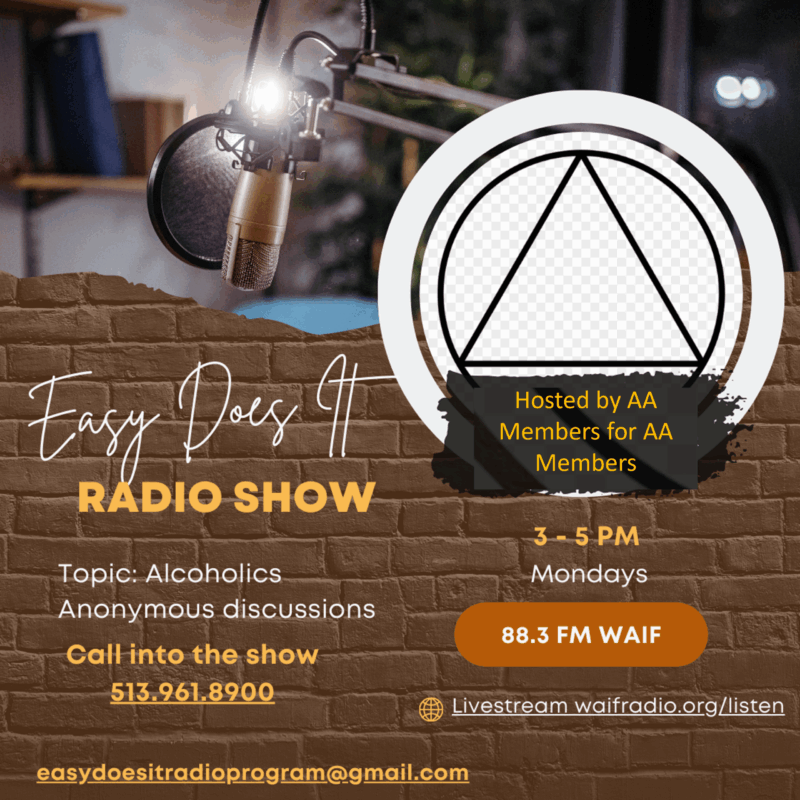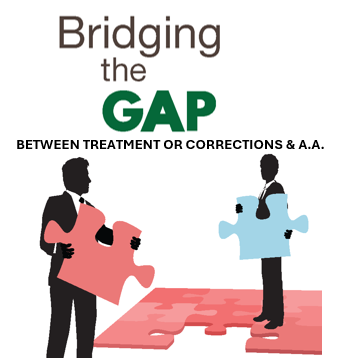
.
Greater Cincinnati Alcoholics Anonymous Central Service Office

.
Welcome to the web page of the Cincinnati Intergroup Central Office of Alcoholics Anonymous. The Central Office, by A.A. tradition, exists primarily as a service organization. It is the first point of contact with A.A. for many who believe they may have a drinking problem, and a resource for finding meetings and information on the A.A. solution to problems with alcohol.
What Is A.A.?
“Alcoholics Anonymous is a fellowship of people who share their experience, strength and hope with each other that they may solve their common problem and help others to recover from alcoholism. The only requirement for A.A. membership is a desire to stop drinking. There are no dues or fees for A.A. membership; we are self-supporting through our own contributions. A.A. is not allied with any sect, denomination, politics, organization or institution; does not wish to engage in any controversy, neither endorses nor opposes any causes. Our primary purpose is to stay sober and to help other alcoholics achieve sobriety.
A.A. Preamble – Reprinted w/ the permission of the A.A. Grapevine Inc.
Call our 24/7 hotline to talk to a member of Alcoholics Anonymous for help 513-351-0422
The primary purpose of Greater Cincinnati Intergroup is to assist the Alcoholics Anonymous groups of Greater Cincinnati in carrying the AA message to those who suffer from alcoholism. Intergroup is responsible to the member groups of Greater Cincinnati. In all its activities, policies, and proceedings, Intergroup is to observe the practice and spirit of AA’s 12 Traditions & 12 Concepts for World Service, as well as its three legacies of Recovery, Unity, and Service. (From the Greater Cincinnati Intergroup Bylaws)
Explore Local AA
Help carry the AA message
AA is built on one alcoholic helping another. Everyone has a story. We are all part of a great whole, which is greater than the sum of its parts. There may be someone only you can reach. Follow the links to the Volunteer Opportunities to explore some of the many ways to be of service in the Greater Cincinnati area.
What else can you do? Attend the monthly Intergroup Council Meeting, and get active! We meet the 2nd Monday of Each Month (except July) @ 7:30 PM, with New Rep Orientation @ 7:00 PM, at Mt Auburn Presbyterian Church, 103 William Howard Taft Rd, Cincinnati, OH 45219. All AA members are welcome, and you don’t need to hold a voting position to participate. We hope to see you there!
Volunteer Opportunities
Intergroup Representative
Represent your home group at our monthly meeting, serve on a committee or be an intergroup officer
Footsteps Newsletter
Write stories, help fold & sticker or serve on the committee.
Night Owl Hotline
Answer phones after office hours by having calls forwarded to your phone. Most volunteers serve one or two night or weekend shifts a month.
Central Service Office
Answer calls and help customers in our office. Most volunteers serve just a few hours a week.
Temporary Contact
Help newcomers transition from institutions to the rooms of A.A. through the Bridging The Gap program.



